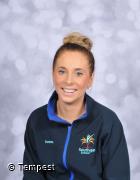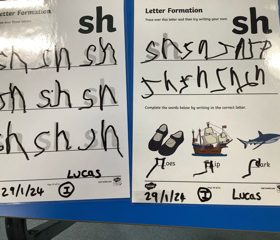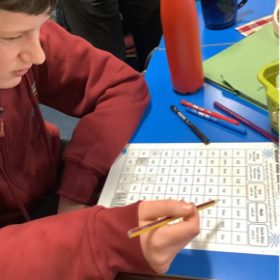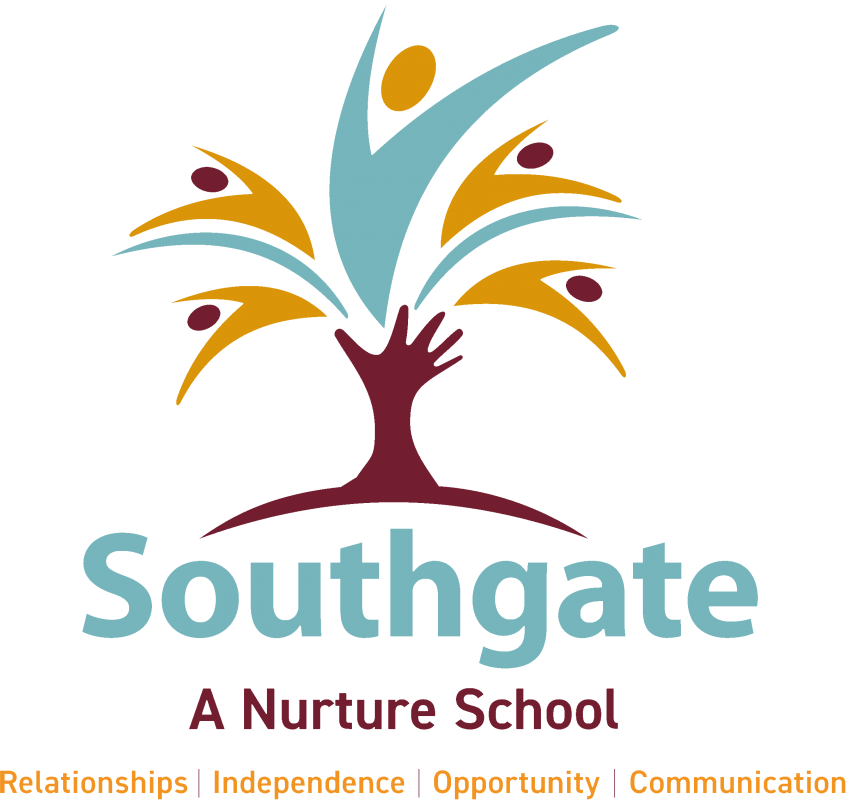

Key Information – English & Communication
Subject Lead: Gemma Kenworthy
Tel: 01484 504544
Email: gemma.kenworthy@southgateschool.co.uk
Vision
At Southgate School we aim to provide pupils with the opportunity to become immersed in an environment rich in print and possibilities for communication. We strive to support our pupils in developing their understanding of the importance and value of both the spoken and written word and how to use these effectively and with confidence in everyday life.
Curriculum Intentions
- As English is a core National Curriculum subject it will be taught in discrete lessons, focussing on Reading, Writing and Communication across the timetable. As well as stand-alone lessons, pupils will use Communication, Language and Literacy in every part of their curriculum and will be given opportunities to speak, listen and represent their ideas in all activities.
- For those pupils it is appropriate, a systematic, synthetic phonics approach is used in the early teaching of reading. Little Wandle Letter and Sounds revised SSP is the standardised scheme used across school when teaching recognition of individual letter sounds and the decoding of unfamiliar printed words. Pupils will follow the SEND or Fluency Programme which will also aids the development of prosody and comprehension skills. Whilst we endeavour to maintain fidelity to the scheme and the recognition of cognitive overload, to support our ethos of a total communication approach some children will also use Jolly Phonics actions, when developmentally appropriate, and/or Makaton signs as a physical and visual cue to recognise and recall phonemes. Other adjustments that may be made to enable pupils to learn to read using the Little Wandle Programme may include but are not limited to: adapted resources, cued articulation, British Sign Language (BSL), Makaton, eye gazes and Picture Exchange Communication System (PECS). Pupils who are registered blind or partially sighted can also access free adapted versions of the Little Wandle resources and books from the RNIB.
- For those children who are not yet able to access phonics, or where phonics is not deemed to be the best approach to reading for them, they will either follow the SEND Foundations for Phonics part of the scheme, Attention Autism or See and Learn. We also recognise that for pupils that reach KS3/4, phonics may not be the most appropriate approach to teaching reading and these cases will be discussed on an individual basis with the English lead.
- Pupils will receive regular, discrete Guided Reading Sessions throughout their week.
- Access to Southgate School Library ensures pupils have access to a range of books to read for pleasure, either shared with an adult or read independently.
- All pupils will have a choice of both fiction and non-fiction texts, reflecting a range of different cultures as well as protected characteristics. There will also be books relevant to the topic/theme being studied each half term.
- At Southgate School we have adopted the Little Wandle reading scheme along with their fluency books. Pupils have access to the Collins Big Cat Library both within school and at home
The Journey from Semi-Formal to Formal
Our youngest pupils begin their English journey exploring early mark making to develop their understanding of print and expressing their own ideas in a written form. They engage with and explore sounds, books and language to understand that words convey meaning, purpose and enjoyment.
As our pupils make a journey into formal learning they begin to focus more in depth on the process of reading, developing their understanding of narratives and broadening the range of texts which they enjoy and comment on. They begin to use more complex phonetic knowledge as well as simple grammatical rules to support them to share their own ideas in their writing.
Pupils accessing our Formal curriculum work to extend and apply their grammatical knowledge when reading a broad range of texts, demonstrating their confident understanding through higher level inference, prediction and information retrieval. Their writing demonstrates their wide vocabulary combined with their understanding of complex spelling rules to write extended pieces of writing, with purposeful effect for a variety of audiences.



